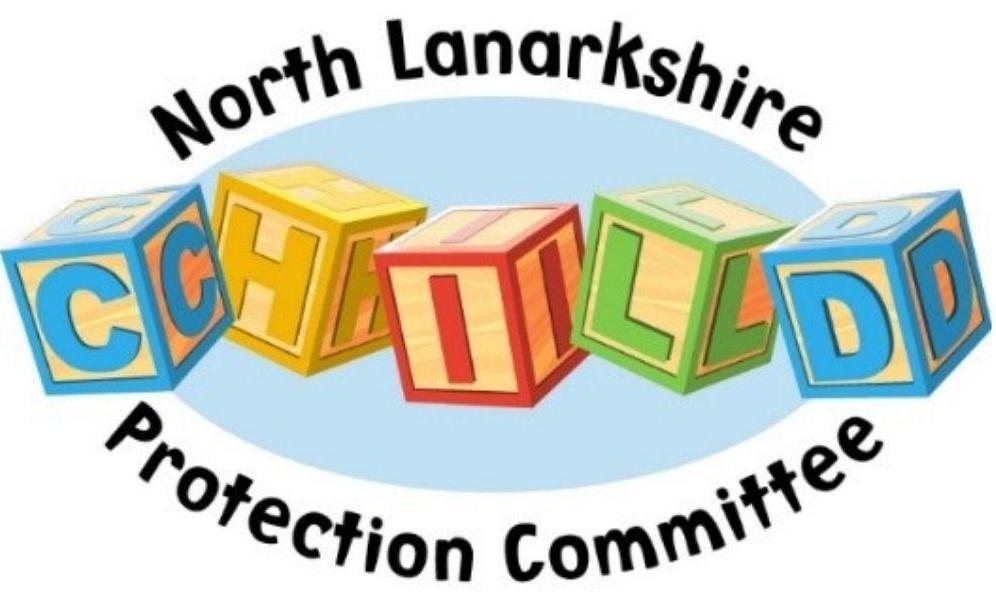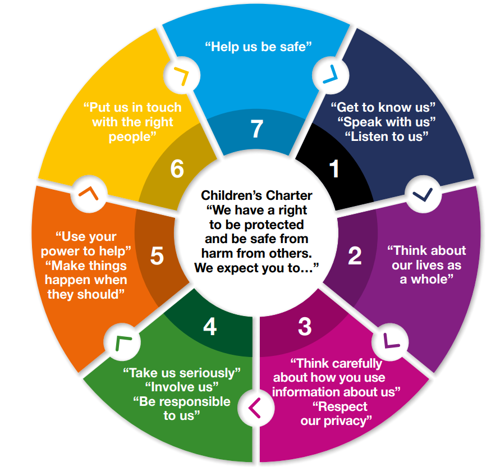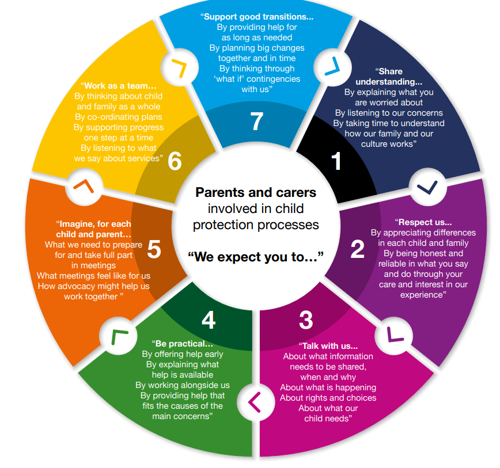Children’s right to participation is on par with their right to protection and the provision of conditions favourable to their development. Rights are important anywhere and anytime but paying attention to them may become particularly urgent in a setting where children have been exposed to an increased risk of harm.
- Whenever possible children and young people must have the opportunity to be involved in all decisions affecting their lives. Their right to protection and participation are enshrined in the United Nations Convention on the Rights of the Child, predominately in Article 12
- It is important that the principles of working in partnership with children and their families/carers are at the forefront in child protection.
- Child protection investigations should always be carried out in such a way as to minimise distress to the child, and to ensure that families are treated sensitively and with respect
- Children want to be respected, their views to be heard, to have stable relationships with professionals built on trust and for consistent support provided for their individual needs. This should guide the behaviour of professionals
- Anyone working with children should involve them at every stage of the child protection process, see and speak to the child; listen to what they say, take their views seriously; and work with them collaboratively when deciding how to support their needs
- Child protection investigations need to be conducted taking cognisance of the fact that children may fear reprisals if they disclose, i.e., grooming/coercion.
- The social worker should explain the purpose and outcome of the investigation to children (having regard to age and understanding) and be prepared to answer questions openly, unless to do so would affect the safety and welfare of the child.



